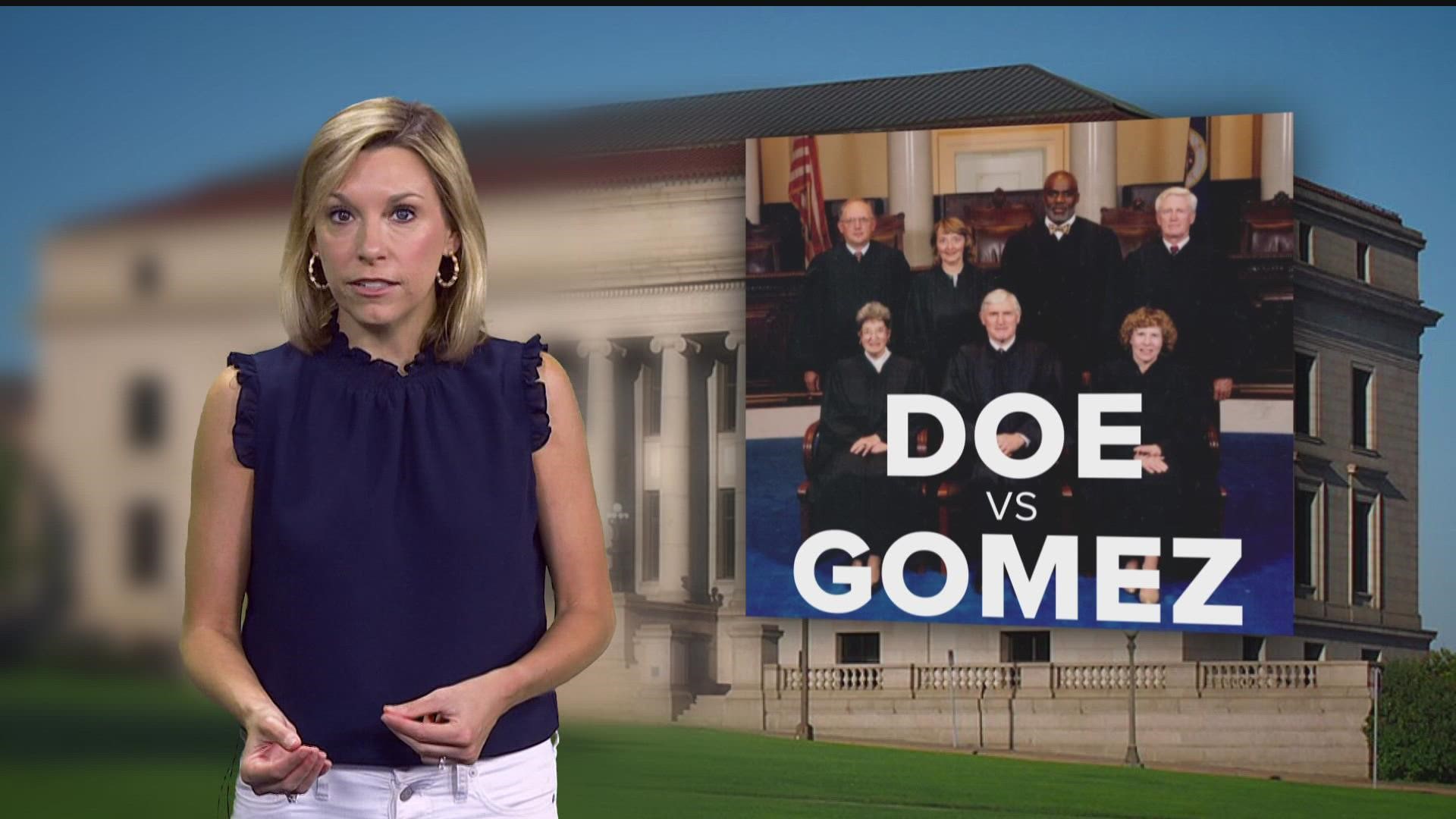MINNESOTA, USA — The Supreme Court on Friday ruled to diverge from nearly 50 years of precedent by overturning the landmark Roe v. Wade decision, essentially ending federally protected abortion procedures in the United States.
The decision, a response to Dobbs v. Jackson Women's Health Organization, was reached by a 6-3 court majority.
In the majority opinion, Justice Samuel Alito wrote, "The abortion right is also critically different from any other right that this Court has held to fall within the Fourteenth Amendment’s protection of 'liberty.'"
Justices Breyer, Sotomayor, Kagan commented in their dissent of the court's decision: "With sorrow—for this Court, but more, for the many millions of American women who have today lost a fundamental constitutional protection—we dissent."
Dobbs v. Jackson Women's Health Organization was brought before the court over a Mississippi law that would ban abortions after 15 weeks. As lower state courts spent the last few years denying the constitutionality of the law and preventing it from being enacted, the state sought to overturn 1973's Roe decision in its entirety, which gave pregnant people the right to abortion before "fetal viability" - a period most experts say occurs around 23 weeks.
The renewed national focus on abortions was fueled earlier this year by a leaked Supreme Court of the United States (SCOTUS) draft opinion, suggesting the majority of justices were poised to support the overturning of Roe. In that draft opinion, Alito wrote Roe and a subsequent decision revisiting Roe in 1992 — Planned Parenthood v. Casey — "must be overruled."
What does the court's decision mean for abortion rights in Minnesota?
Following the draft opinion leak in May, Gov. Tim Walz, along with many other Democratic state lawmakers, adamantly defended abortion rights and vowed to protect them in Minnesota.
A 1995 ruling in the state's Doe v. Gomez case guaranteed the right to have access to an abortion in Minnesota, and further required the state to cover costs for low-income patients. Although SCOTUS has now rescinded federal protections for those seeking abortions, experts say it is unlikely the state ruling would be overturned.
However, members of the Republican delegation in Minnesota have continued to press for more severe restrictions on abortion, going so far as to discuss an attempt at passing legislation that would ban the procedure should the party come to control both the legislature and governor's office in the future. Legal experts contend that even if a ban passes in some form, it would still face a legal challenge because of the prior Doe ruling.
Because anti-abortion advocates don't necessarily see an easy, clear path to overturning Doe — or passing more rigid regulations for abortion rights anytime soon — some are pushing to include a constitutional amendment on a future ballot accomplishing those objectives.
What does the ruling mean for out-of-state residents seeking abortions in Minnesota?
Just this week, Attorney General Keith Ellison announced his intent to not only protect abortion rights in Minnesota, but to extend support to others seeking to travel to Minnesota and have a procedure performed.
In preparation for SCOTUS' Friday ruling, Ellison launched a new website explaining Minnesota's existing abortion rights, and asserted that anyone who wants to have an abortion in the state will not be prosecuted. Further, Ellison promised to fight extradition efforts by other states pursuing criminal charges against those who travel to Minnesota for the procedure, or to acquire birth control.
"If somebody comes to Minnesota, avails theirself of their constitutional rights and goes back home, I will follow them there, and file motions in Court if somebody tries to prosecute them for getting an abortion in Minnesota," said Ellison during a press conference Friday. "I don't believe anybody would have jurisdiction in another state for what someone did in Minnesota, which is legal, and we will stand up for people's rights. We're not backing down on that."
St. Paul-based Planned Parenthood North Central States said in anticipation of SCOTUS striking down Roe, its clinics have been bracing to accommodate the influx of people from other states who will inevitably seek abortions in Minnesota.
Abortion rights in Wisconsin are expected to revert back to a pre-Roe law from 1849 with the overturning of Roe, which effectively enacts a near-total ban on abortions.
For now, abortions will still be legal in Iowa should SCOTUS strike down Roe, but the state's conservative-majority Supreme Court is set to circle back and revisit a 2018 decision that provides an even stronger defense of abortion rights than Roe.
Minnesota's other neighboring states, North Dakota and South Dakota, both have already passed "trigger laws," which guarantees an almost-immediate ban on abortions, regardless of circumstance, after Roe is overturned.
Data collected from the Minnesota Department of Health's latest report in 2020 show the state had 20 facilities that offered abortions, four of which are Planned Parenthood locations. The same data also shows there were just over 9,100 abortions performed in 2020.
The data also shows a majority or those people were in their 20s and first trimester.
You can read the full Supreme Court opinion here.
Watch more local news:
Watch the latest local news from the Twin Cities in our YouTube playlist:

